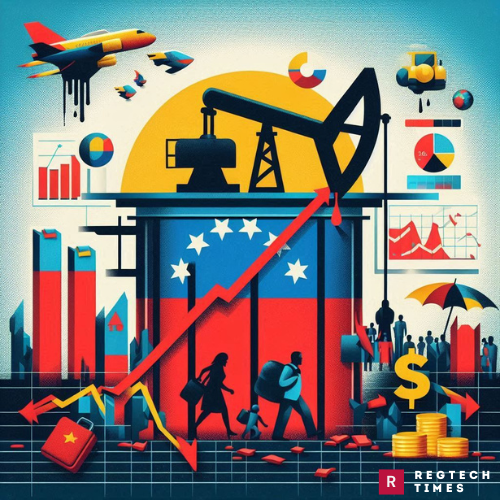In recent years, the use of economic sanctions has become a prominent tool in U.S. foreign policy, aimed at punishing oppressive regimes and promoting democratic governance. The case of Venezuela under the Trump administration highlights the complex and often unintended consequences of such measures. Despite internal warnings, the Trump White House imposed severe Venezuela sanctions, contributing to a dramatic economic collapse and a significant migration crisis.
The Debate Over Venezuela Sanctions
From 2017 to 2019, the Trump administration escalated Venezuela sanctions in response to human rights abuses, extrajudicial killings, and rampant corruption under President Nicolás Maduro. Proponents of these sanctions, including former National Security Adviser John Bolton, believed that targeting Venezuela’s oil industry, the regime’s primary economic lifeline, would weaken Maduro’s grip on power. They viewed these sanctions as a critical, albeit unsuccessful, strategy to either remove Maduro or limit his regime’s resources.
However, the Department of Homeland Security (DHS) and the Treasury Department repeatedly warned of the potential humanitarian fallout. Classified assessments indicated that severe Venezuela sanctions could exacerbate the country’s economic troubles, accelerating its collapse and prompting millions to flee. Despite these warnings, the administration pressed forward with the sanctions, prioritizing immediate impact over long-term humanitarian consequences.
Economic Impact of Venezuela Sanctions
Venezuela’s economy had been deteriorating due to years of mismanagement by Maduro and his predecessor, Hugo Chávez. The country’s dependence on oil exports, combined with poor economic policies, had already set the stage for disaster. The imposition of Venezuela sanctions further restricted the country’s ability to export oil and access international markets, leading to an unprecedented economic contraction of 71% from 2012 to 2020. This decline was one of the largest in modern history for a country not at war and was accompanied by hyperinflation, widespread shortages of food and medicine, and a collapse in public services.
The economic collapse caused by Venezuela sanctions had severe humanitarian consequences. Malnutrition and a lack of basic necessities became widespread, driving millions of Venezuelans to seek refuge elsewhere. Initially, many fled to neighboring countries like Colombia and Peru. However, as the situation deteriorated, an increasing number began migrating northward to the United States.
Migration Crisis Resulting from Venezuela Sanctions
The scale of migration from Venezuela has been staggering. Over 7 million Venezuelans have left the country since the economic crisis began in 2014, with a significant increase following the imposition of Venezuela sanctions. By 2021, U.S. federal border authorities had encountered over 800,000 Venezuelans, making the migration crisis a major issue in U.S. politics.
Trump administration officials were aware of this potential surge. DHS reports highlighted the risk of increased migration under tighter sanctions. Despite these insights, the administration’s focus remained on maximizing the impact of Venezuela sanctions rather than addressing the humanitarian fallout.
Ignored Warnings and Regional Impact
Warnings from regional allies regarding the impact of Venezuela sanctions were largely ignored. Mexico and Colombia expressed concerns about the potential for increased migration due to the sanctions. In a 2018 meeting, Mexican officials warned that harsher sanctions could lead to a mass exodus through Mexico and into the U.S. Similarly, Colombian authorities, already managing an influx of Venezuelan migrants, feared that additional sanctions could exacerbate the situation.
The case of Venezuela highlights the complex effects of economic sanctions. While aimed at undermining an oppressive regime, Venezuela sanctions significantly worsened the economic and humanitarian situation, leading to a massive migration crisis. This situation highlights the need for policymakers to carefully consider the broader humanitarian impacts and potential second-order effects of economic sanctions. Balancing the objective of punishing oppressive regimes with the imperative to avoid worsening human suffering remains a critical challenge in the use of sanctions as a foreign policy tool.


